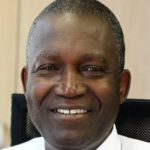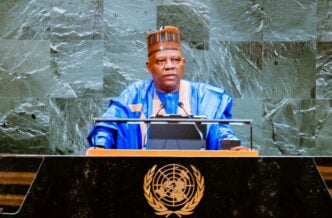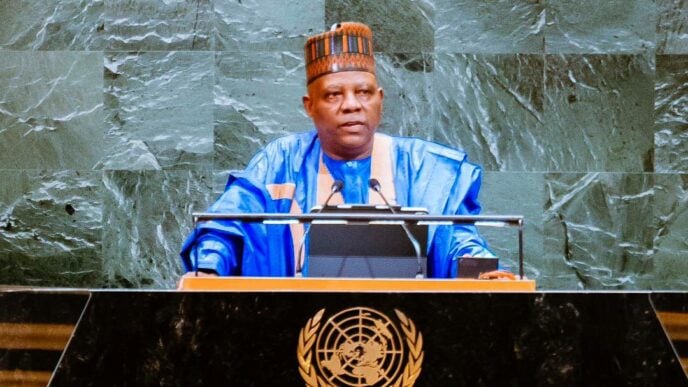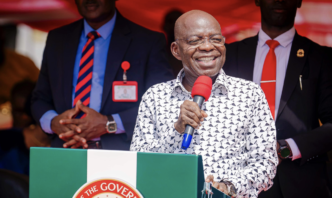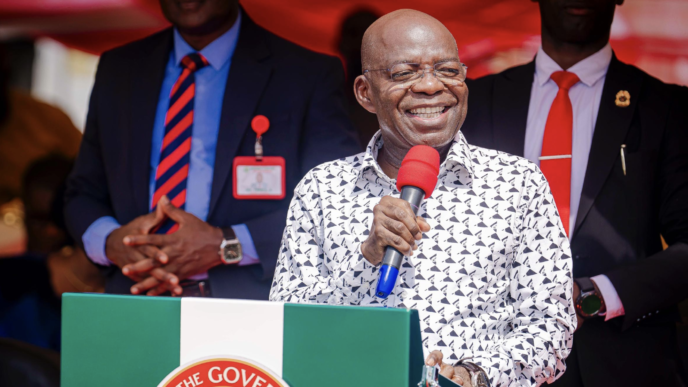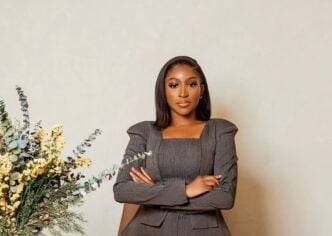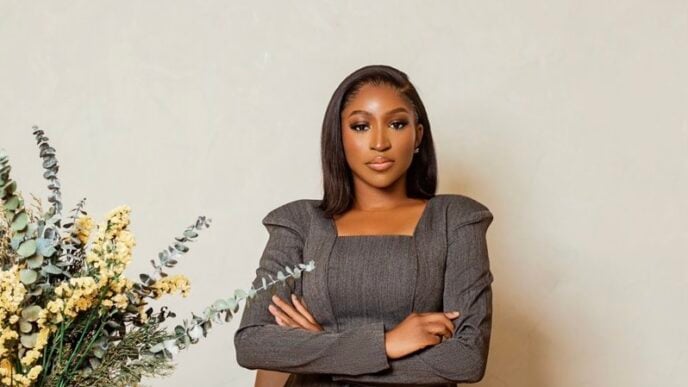Each year, the National Basketball Association (NBA) in the United States of America (USA) chooses the most promising future basketball talents for the upcoming season. The key event, known as the draft, signifies the introduction of future top athletes. They join their teams, aiming to win games, and both the teams and the rookies make a lot of money too.
The NBA basketball industry is valued at about 133 billion US dollars, and the league has an estimated revenue of over 11 billion US dollars annually. In the highly profitable sporting industry, basketball comes next to American football and goes head-to-head with baseball as one of the most lucrative sports in the USA.
NBA and Nigerians
In the NBA 2019-2020 draft, an unprecedented number of eight players of Nigerian heritage were selected, the highest number ever from Africa. In the 2023-2024 season, three new players of Nigerian roots were chosen. From 2015 to 2024, a total of 19 players of Nigerian descent were drafted.
Advertisement
A high number of Nigerians play for the top NBA teams currently, and the steady presence of players of Nigerian descent in the NBA is assured for decades, alongside a few other players of African descent.
In the USA, as in many countries around the world, Nigerians also feature in American football, baseball, and soccer, the more recent major sport to gain popularity in the USA. But nowhere has the Nigerian footprint been as compelling as it is in basketball within the NBA.
It was not always this way.
Advertisement
First African in NBA
In October 1980, a skinny, shy and tall Nigerian boy took a flight from Lagos to New York, armed with only a note of introduction for possible admission to college, and to secure a scholarship based on his hopeful basketball skills. In the United States, he could try his luck with four colleges, thanks to an American coach who identified him, made the contacts in the colleges, and facilitated obtaining a visa for the USA in Lagos.
The 17-year-old boy was Hakeem Olajuwon, the first African to be selected in the NBA draft. Standing at six feet eleven inches, he was the trailblazer whose exemplary basketball skills opened the doors for many future African players.
Olajuwon was accepted by the first and only college that he visited, the University of Houston. He studied at the university, played there, and from there was drafted in the first round as first overall pick in the 1983-1984 season by the Houston Rockets, ahead of Michael Jordan, picked also in the first round but as the third overall pick by the Chicago Bulls.
Advertisement
Although Jordan came to have a higher name recognition and superior game than those who were drafted ahead of him, Olajuwon came first in the sport on several fronts during a career of some 18 years. Incidentally, both Jordan and Olajuwon were born in 1963, separated by a few weeks.
Olajuwon led his team, the Houston Rockets, to secure two NBA championships, and he holds records and awards in many aspects of the sport. He also played briefly for the Toronto Raptors.
Sports In The World
Worldwide, many Nigerians have kept emerging at the apex level of global sports, especially overseas. There is absolutely no question regarding the wealth of talent and physical capabilities in sports in Nigeria. Sorely lacking are the mentorship, training facilities, and exposure to first-class guidance and development.
Advertisement
Basketball, despite its early start in Nigeria, remains hardly visible as a sport or business. Yet, its potential is huge.
It is noteworthy that some past and current NBA stars of Nigerian descent have coaching clinics, academies, foundations and other services that encourage and develop interests and gifted players in basketball in Nigeria.
Advertisement
The list comprises Olajuwon, Precious Achiuwa of the Miami Heat (formerly of New York Knicks), Giannis Antetokunmpoh of the Milwaukee Bucks, Zeke Nnaji of the Denver Nuggets, Obinna Ekezie, formerly of the Washington Wizards, and Chiney Ogwumike, who has played for both the Los Angeles Sparks and the Connecticut Sun – in the Women’s National Basketball Association (WNBA). Masai Ujiri’s Giants of Africa scouts for talents, and promotes the sport in many African countries.
The Future of Basketball in Nigeria
Advertisement
The International Basketball Federation (FIBA) and the NBA established the Basketball Africa League (BAL) that organizes competitions and develops capabilities for male and female players. The Basketball Without Borders outreach is one of the means that they deploy to achieve the objectives. Many African countries have national basketball leagues and take part in BAL, founded in 2019.
Under the auspices of FIBA, the overarching governing body for international competitions, the Nigerian women’s national basketball team has performed brilliantly and won several championships, confirming the key role of women athletes in the sport.
Advertisement
There is room for much more to be done by Nigeria’s federal and state governments, and local authorities in amassing the untapped resources in basketball. The private sector has an important role to play, both from a purely investment point of view and as a contribution to the community.
Now and in the future, there should be greater attention paid to developing local talents, and bringing more women into the sport. For example, building on demonstrated and latent interest, the private and public sectors should cultivate and partner with the athletes in the diaspora to encourage and establish leagues in cities and states.
A massive industry awaits in basketball and sports in general, given the size, market and resources of Nigeria’s immense population of approximately 240 million people.
Makinwa is an analyst, writer and commentator. He is the CEO of AUNIQUEI Communication for Leadership.
Views expressed by contributors are strictly personal and not of TheCable.
